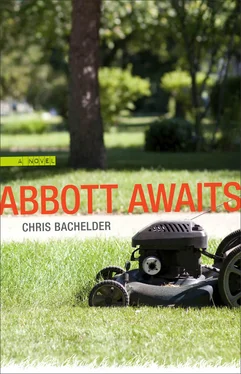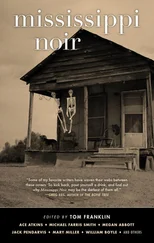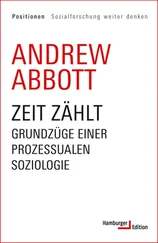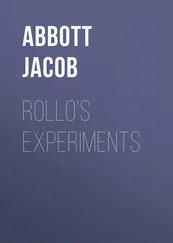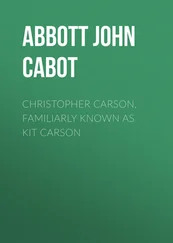Abbott just stumbled accidentally upon this treatment, but now he swears by it. It’s a little of the hair of the dog that bit you. The first thing you’ll need to do is have a child. The best kind for this remedy is a child who has some manual dexterity, who can safely and neatly chew solid foods, and who can ride placidly in a car seat. A two-year-old child usually works well. Next you’ll want to buckle the child into its car seat with some soothing words or perhaps a folk song about the sinking of a great ship. You don’t want a fussy child. Start the car and begin driving around. It does not matter where you drive, but Abbott recommends, for safety’s sake, that you avoid heavy traffic and/or winding roads. Also: a clear, dry day is best. Now, once you have helped create this child and buckled it happily into a moving car, you’ll need to open a plastic bag full of snack items. Dry cereal is fine, as are raisins, pieces of dried fruit, or small nuts. Use something that the child likes. While steering with your left hand, use your right to offer a small snack item back to the child in the car seat. Show appropriate caution, obviously. Hold the snack item securely but gingerly. Do not turn around, and do not use the rearview mirror to look at the child. Looking back is not only dangerous, it also ruins the treatment. Keep your right hand extended backwards, despite the growing discomfort. If it helps, talk to the child about what is happening. (“Here’s a pretzel for you.”) Now wait . Keep your eyes on the road, your left hand on the wheel. Keep your snack arm extended toward the backseat. You may feel a burning sensation in your shoulder, and that’s fine. Wait. Stop talking. The waiting is crucial. Your sense that the child does not want the snack item or can’t reach it or in fact is not a real and separate person — crucial. Do not turn around. Do not talk. Just pose a question with your right arm, extend it into the mystery of the backseat. Now: Feel the child’s tiny warm hand graze your scarred and callused fingers. This is important. Feel the child achieve a grip on the snack. Don’t look! If you see it, you won’t feel it. Feel the tug as the child, of its own startling volition, takes the food from your light grasp and, one presumes, eats it. Your snack hand should be and feel empty. The emptiness is crucial. Repeat as desired.
It’s nearly midnight when Abbott’s wife walks into the basement to find Abbott with his head against a heating duct. She’s holding a magazine, wearing underwear and a tank top that doesn’t quite cover her stomach. Abbott can see a crescent of taut white skin beneath the hem. “What are you doing?” he says. “I’ve been looking all over for you,” she says. “We should probably whisper,” Abbott says, pointing upward. They are standing directly below their daughter’s bedroom, and sound does carry in the house. Still, Abbott’s wife rolls her eyes at him. “What are you doing?” she says. “Sorry you’re still up,” he says, putting his head against another section of duct. “This floor is gross,” she says, and they both look down at her bare feet, one on top of the other, toes curled. Abbott’s wife has to lean forward to see them. “I’m looking for a noise,” he says. “What kind of noise?” “I don’t know,” he says. “Kind of a rustle. Tell me if you hear it.” His wife switches feet. “I brought you something,” she says. She opens the magazine and begins reading an article on airplane safety. She knows he is scared to fly, and she knows, further, that he reaches irritably after fact and reason. The chance of a plane crashing is one in 11 million. The wings on a jet are built to flap up and down. It’s called flexing. “I knew that one,” Abbott says, tapping the edge of square silver duct with his fingernail. “And if the wings didn’t flex, the ride would be terrible,” his wife says. “I know,” he says. His wife keeps reading. Only one plane has ever crashed because of turbulence. “ Ever ?” asks Abbott. “Ever,” she says. “And probably only because it was flying too close to a mountain.” Abbott’s wife reads a passage about how people who are afraid of flying are advised to think about the plane being suspended in a big bubble of gelatin. Abbott has no idea what that means or how it might help. “And listen, turbulence,” she says. “Turbulence, because of the speed of the aircraft, turbulence feels much worse than it actually is.” Abbott stands up straight. The only light is from an exposed sixty-watt bulb on the ceiling. The basement darkens at the corners. His wife looks like some kind of ghost or dream, talking about aircraft. Abbott has cobwebs in his hair and on the back of his neck. “That doesn’t make any sense,” he says. “How can turbulence be not as bad as it feels? Turbulence is what turbulence feels like. That’s exactly what it is. You can’t distinguish turbulence from its effects.” “No,” his wife says. “There’s the air currents or whatever outside the plane. Think of the gelatin. Then there’s the bumping and falling sensation that the passengers experience.” “We should whisper,” Abbott says. “I might have just heard the rustle,” she says. “That wasn’t it,” he says. “If you hit a tiny rock in a car going thirty miles per hour, it doesn’t feel that bad, but if you hit the same kind of bump in a jet going”—she checks the magazine—“eight hundred feet per second, then it feels more severe.” Abbott is almost entirely certain that an airplane would not hit a tiny rock in the air, though he wishes his wife had clarified that point. She says, “Not that planes hit rocks. They hit air currents.” “Of course,” Abbott says. He had never considered that turbulence exists independently of our perception of it, though the point is suddenly evident. “The main thing is if you can picture the aircraft in a big pocket of gelatin,” she says. “I still don’t get that,” Abbott says. He would like to get it. “A jet is only moving about one inch up or down,” she says. She has closed the magazine, and she is palpating herself below the ribs. “Are you OK?” Abbott says. His wife says, “The baby keeps jabbing me up here.” He says, “Are you worried about it?” She says, “No. The main point with the turbulence is that things aren’t really as bad as they seem. Or feel.” Neither Abbott nor his wife says anything for a minute or so. There is no need for Abbott’s wife to say that turbulence is in this respect just like so many things in life, and there’s no need for Abbott to say that turbulence is in this respect quite exceptional. At some point you do not need to talk to have a conversation. The conversation exists whether you have it or not. It continues silently in a parallel dimension of the marriage. They both pause to let it run its course toward another stalemate. When it’s over, Abbott whispers, “Eight hundred feet per second?”
25 The Obstetrician’s Tale
“It’s a true story. During my first pregnancy, I really did stay up late at night reading my old embryology textbook — those million tiny things that all have to happen perfectly. And I really did come in to work early every day to give myself an ultrasound. I’m only trying to commiserate, but I should know by now that there are some people — and it’s usually the men — who I just shouldn’t say those things to.” “But still …” “Still what? It’s nice that they come?” “Well, it is nice.” “You know, I used to think that too. But now I’m sick of all these heroes.”
26 Abbott and the Oversized Load
Читать дальше
